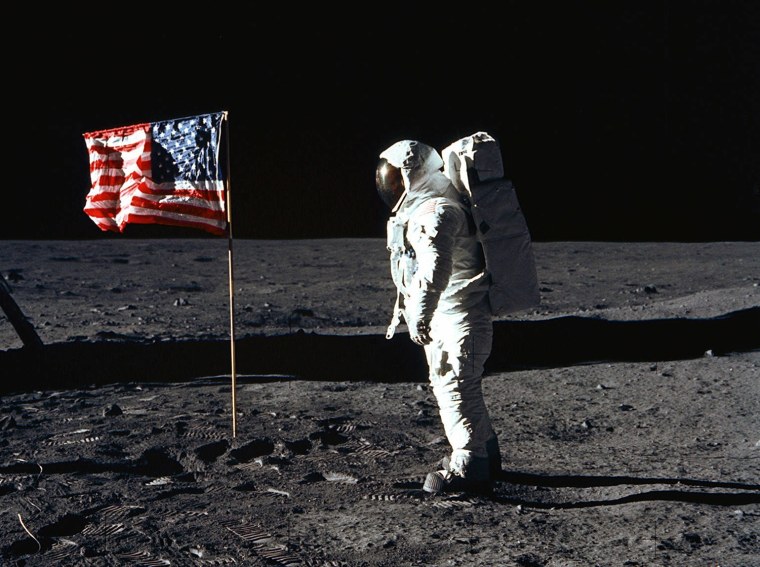The last time humans touched the moon’s surface was 1972. But that’s not stopping a few members of the House of Representatives from anticipating our return.
Two Democratic Congresswomen are proposing a bill that would establish a national historic park on the moon. The bill, H.R. 2617, called the “Apollo Lunar Landing Legacy Act,” would designate the artifacts that were left on the moon as a national historic site. It aims to protect the artifacts from harm or interference caused by any future landings.
“That history, as preserved on the lunar surface, is now in danger, as space-faring commercial entities and foreign nations begin to achieve the technical capabilities necessary to land spacecraft on the surface of the moon,” the bill’s sponsor, Rep. Donna Edwards, a Maryland Democrat, said in a statement. She is also introducing legislation to reauthorize NASA and establish its future budget.
Kristin Kopshever, a spokeswoman for the House Science, Space, and Technology Committee, one of the committees the bill has been assigned to, told msnbc that the legislation does not include any funding mandates or guidelines, and won’t mean that astronauts would have to return to the moon any time soon. It only addresses the actual artifacts themselves, not the land they sit on. The bill was also referred to the House Committee on Natural Resources.
“I realize that it can sound far-fetched to say that we’re going to have a National Park on the Moon,” the bill’s co-sponsor, Rep. Eddie Bernice Johnson of Texas said in a statement. “I don’t think that there is anything far-fetched about protecting and preserving such irreplaceable items and such a hallowed place."
Kopshever acknowledged that while “people won’t be bouncing around the moon in the next five years destroying Apollo artifacts,” the concern is that as technological advancements move quickly, “private groups could design a rocket to go to the moon and damage them.”
The park would be managed by the U.S. Department of the Interior and NASA, who would be able to accept donations from from foreign governments, organizations, or individuals “to provide visitor services and administrative facilities within reasonable proximity to the Historical Park,” according to the bill’s text.
As for those “visitor services and administrative facilities,” Kopshever conceded: “We don’t think that there’s going to be a lemonade stand on the moon.”
The website govtrack.us gives it a 21% prognosis on getting past committee and a 7% chance of ever being enacted.
